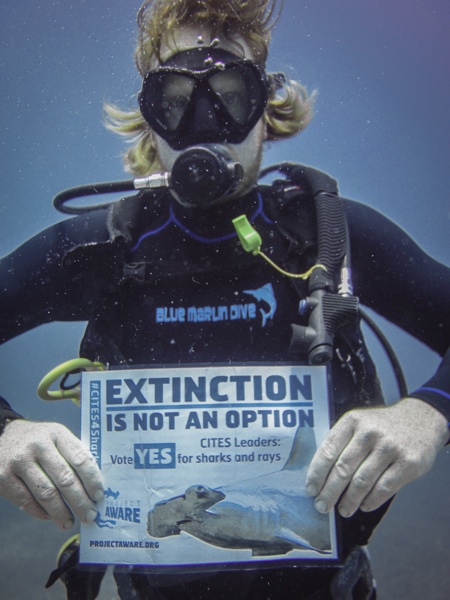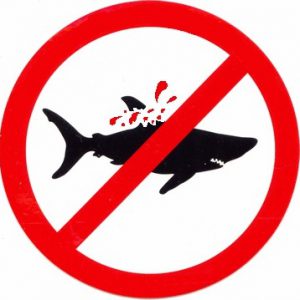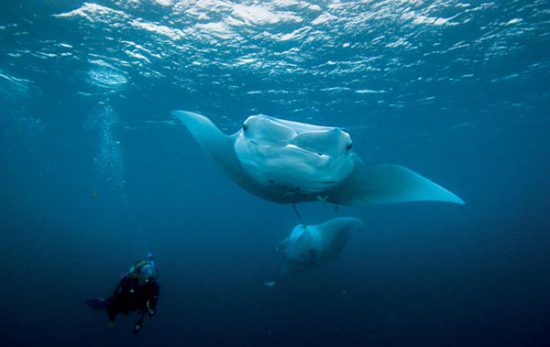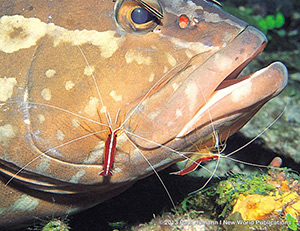When you become a certified scuba diver, you also become an ambassador for the underwater world. Scuba divers experience first-hand how precious and delicate our underwater ecosystems are.
Harvesting of animals and plant life devastates underwater environments that have thrived for thousands of years. The March 2013 CITES convention in Thailand is historic opportunity to protect a record number of sharks and rays – including oceanic whitetip sharks, hammerheads, and manta rays – from the unsustainable international trade that threatens their survival.
What is CITES?
CITES, The Convention on International Trade in Endangered Species of Wild Fauna and Flora, is an agreement between governments worldwide to protect wild animals and plants from international trade that threatens their survival. Because this type of international trade is worth billions each year, it’s no surprise that over-harvesting both on land and in the water endangers a number of species.
Joining CITES is voluntary and provides a framework for governments to regulate trade and protect an area’s flora and fauna. To date, more than 30,000 species of plants and animals are listed under CITES. CITES-listed species are subject to strict trade controls, and for highly endangered species, trade can essentially be shut down.
Three species of sharks are currently covered under CITES – whale, great white and basking – but many more are disappearing at alarming rates and deserve to be on the list. Project AWARE, partner organizations and shark advocates around the world will rally to add other vulnerable shark species like hammerhead, oceanic whitetip and porbeagle sharks. Whether killed for their fins, meat, oil, teeth or cartilage, too many sharks are disappearing too quickly.
Project AWARE is also focusing on the protection of manta rays. These gentle giants are at the top of divers’ must-see lists, but too many are being slaughtered for their gill rakers – the tight, feathery structures that strain plankton – worth $500 per kilogram, or about $500 per 2.2 pounds. If we don’t do something now, these gentle giants may disappear from our waters.
Before CITES leaders vote, they need to hear our voice. Please help amplify the call to protect these exceptionally vulnerable species while there’s still time. We won’t have another opportunity like this for several years.
- Send a letter direct to CITES leaders urging them to vote “Yes” for sharks and rays.
- Download the “Extinction is NOT an Option” sign, take a picture and post it to our Facebook wall in support.
- Are you a super shark advocate? Find additional actions you and your student divers can take.
Project AWARE is now on the ground in Thailand, meeting with member countries to CITES, working alongside partners to secure support for sharks and rays one vote at a time. Thank you for standing alongside us in a united voice for their protection.




